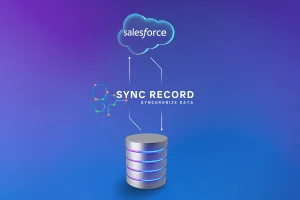With technological advances no longer a luxury but a necessity just to keep up, organizations are facing a turning point. Customer service, which was once a collection of repetitive and time-consuming operations, is now a discipline where innovation and strategy intersect. This is the domain where artificial intelligence (AI) and automation not only rewrite the rules, but also create new opportunities.
Imagine a scale-up in the life sciences sector that uses AI-driven systems to instantly interpret and answer customer questions about clinical trials, without the intervention of a human employee. Or an energy company using AI to automatically assess outage reports and make smart recommendations for troubleshooting. Or a telecom provider using AI to analyze frequently asked questions about network outages in real-time and resolve them instantly. These transformations are not futures – they are happening now.
Why customer service 1.0 is failing
The traditional customer service process resembles a crowded orchestra pit without a conductor: everyone plays their part, but without harmony, chaos ensues. Many organizations still rely on manual processes and static scripts for customer interactions. This often leads to inefficiencies, an increased risk of errors and a lack of flexibility in customer interactions.
Traditional chatbots, for example, worked primarily with pre-programmed answers. As a result, they could only interpret customer questions literally and struggled with context or nuance. The advent of AI fundamentally changes this: AI-driven agents learn from interactions, understand sentiment and can provide personalized answers.
The rise of AI in customer service
Research shows that adoption of AI in the workplace lags behind in the Netherlands. Only 42% of highly educated Dutch professionals use AI tools such as ChatGPT, compared to a European average of 75%. Are we as a people naturally reticent or extra critical? Or simply conventional?
Regulatory bodies such as the Personal Data Authority stress that the rapid rise of AI calls for vigilance from everyone, with risks around AI systems to be closely monitored. This is especially true for applications in customer service, where privacy and the processing of personal data play a crucial role.
Nevertheless, the potential of AI is enormous. AI is being integrated into CRM systems such as Salesforce, ODOO, AFAS and Microsoft Dynamics to optimize customer service processes. This can range from automated ticket processing to AI-driven recommendations for customer service agents.
Case examples of AI in customer service
For Life Sciences companies, AI-driven analytics can be used to analyze patient questions about medication use and treatments. For example, AI can help spot trends, automatically categorize common questions and provide suggestions for personalized care instructions.
In the energy sector, AI agents can proactively detect outage reports, predict them and immediately inform customers of possible solutions or expected recovery times. This reduces pressure on human employees and increases customer satisfaction.
For telecom providers, AI can be used to detect and resolve network problems in real-time by communicating directly with customers about their connection and possible self-help options. This reduces wait times and lowers operational costs.
Moreover, AI agents can automate decision moments. For example, by instantly verifying and handling customer requests based on predetermined criteria. This speeds up processes and reduces pressure on human employees, allowing them to focus on more complex questions and customer relationships.
The human factor and ethical considerations
While AI offers significant benefits, the human factor remains crucial in customer service. Human expertise is essential for strategic decision-making, ethical considerations and ensuring transparency in AI-driven processes. A report by the Personal Data Authority on AI and algorithm risks in the Netherlands highlights the importance of human control to recognize and correct bias in AI systems.
In addition, organizations must pay attention to ethical issues, such as bias in AI models and the impact of automation on employment. It is important to balance technological innovation with human values to ensure responsible and sustainable implementation of AI in customer service. Microsoft aptly calls its AI Copilot. Let AI be the copilot with a controlling function that takes work off our hands. We humans remain the pilot making the decisions and taking responsibility.
Conclusion: use AI as a copilot
Integrating AI into customer service offers organizations the opportunity to transform their processes, increase efficiency and improve the quality of customer interactions. However, the success of this integration depends on a careful balance between technological innovation and human expertise. By combining the power of AI with human intuition and ethical awareness, organizations can create a future where customer service is both advanced and human-centered.

Ask our specialists
Feel free to contact Arnd Jan Prause, Founder and Consultant at musQueteer, if you would like to learn more about AI in Customer service.


